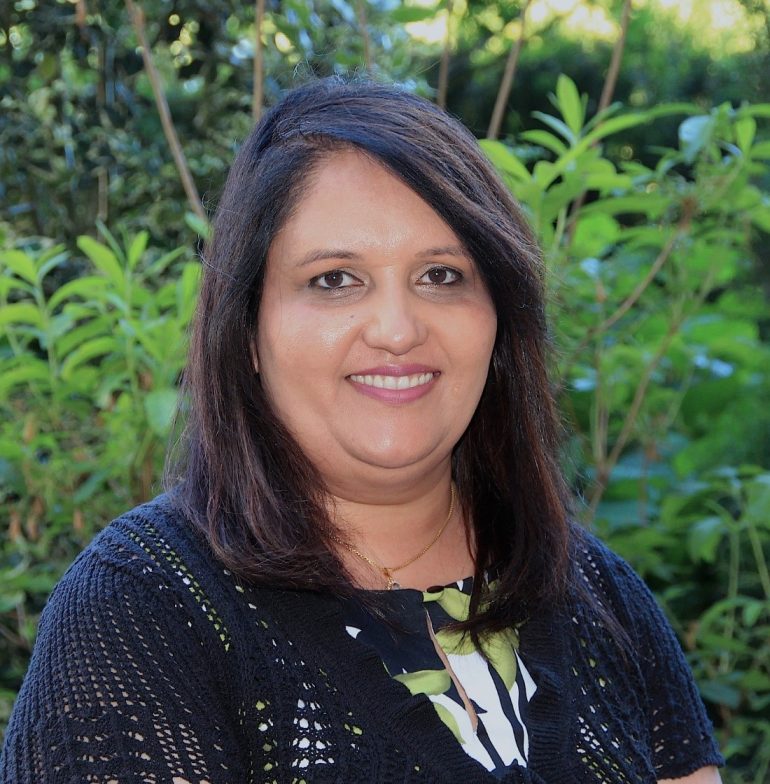By: Pamela Warkentin, BC Centre for Palliative Care
“Life is what happens when you are busy making other plans.”
John Lennon
For Jas Cheema, a single mother with two teens on the cusp of adulthood who was also managing a busy professional life, community leadership responsibilities and an active extended family, this statement couldn’t have been truer. With Advance Care Planning Day coming up on April 16, we sat down with her to discuss how having a plan supported her in navigating a very difficult time.
In the few weeks between Halloween and Christmas in 2014, Jas’s life took a drastic turn when she was diagnosed with cancer. Always a go-getter and used to taking a leading role in her family and community, Jas was suddenly faced with balancing her already busy schedule with a full year of medical appointments, surgery, radiation and chemo… and all of the uncertainty that goes along with such an illness.
“Worst Christmas present ever!” Jas is able to laugh about it now.
“The irony is that I had just come through some very big changes in my life, and I felt that everything was finally falling into place, I was looking ahead with hope.”
Breaking the news
Jas had to figure out a way to tell her family the news, and then talk – really talk – about what was ahead.

Jas, who comes from a closely connected Punjabi-Canadian family, now had to figure out a way to tell them the news and talk – really talk – about what was ahead.
“I just called everyone together and made one big announcement… which was met by dead silence, and then my sister and a cousin tried to joke it off,” says Jas. “I didn’t realize just how big a shock it would be for them, and how much they just weren’t ready to hear it.”
The next morning, her parents who weren’t able to attend the night before, were at the door. “My mom kept saying things like ‘it’s nothing, probably just a cist,’ ‘you’re so healthy,’ ‘doctors can make mistakes.’ I just kept repeating ‘I’ve done all the tests…Mom, I have cancer’…over and over until finally she was able to digest the news, bringing her to tears…”
Sharing her wishes
One of the first worries Jas had was making sure all her estate documents and health-care wishes were up to date so that the kids wouldn’t need to worry about anything and that they would know how to handle things if she wasn’t able to.
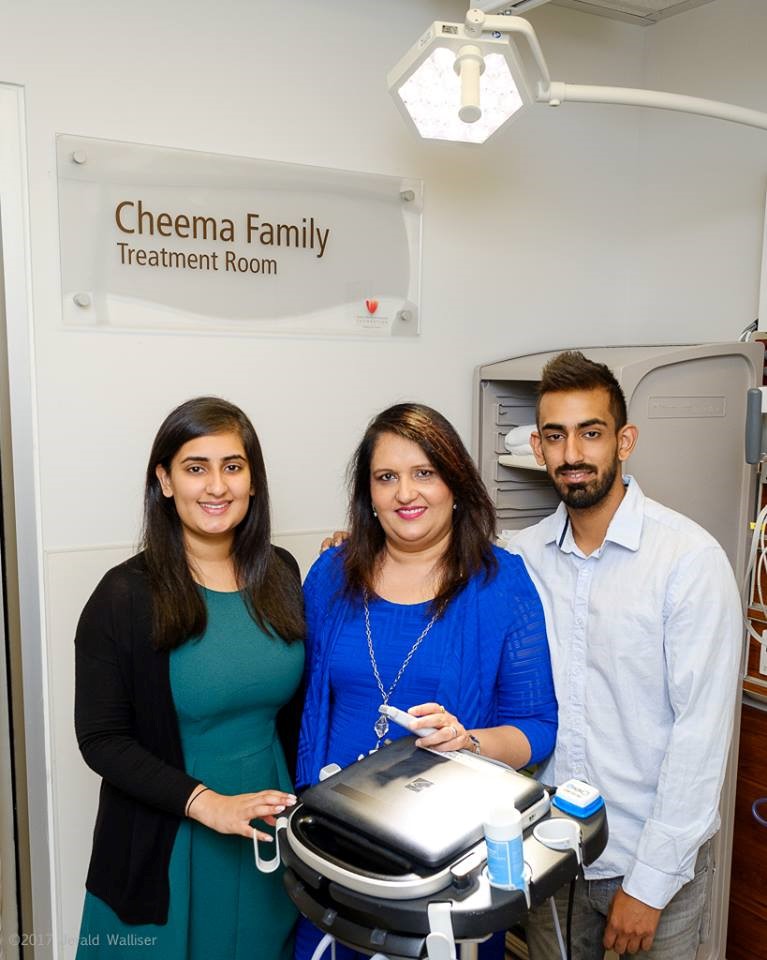
Jas was already familiar with advance care planning: she had been involved with advance care planning training in the South Asian community and had worked at Fraser Health developing and translating culturally sensitive advance care planning information into Punjabi.
In short, advance care planning is a process of thinking about your values, beliefs, and wishes for future health and personal care, and sharing them with the people you trust. Advance Care Planning can include choosing who would make care decisions for you if you cannot. It can help you get the care that’s right for you, even if you’re unable to speak for yourself.
“It’s one thing to know about the steps of advance care planning, and another thing to walk through the process,” says Jas.
She says that thinking about ‘what ifs’ and reflecting on what her wishes would be was a very moving experience… and a valuable one, since it encouraged her to look inwards to explore what mattered most in her life. Before her diagnosis, she had been so busy and focused on other people that taking time for this kind of reflection wasn’t a priority.
Once she was clear on her own wishes, beliefs, and values, it was time to talk to family members about what she wanted and who would speak for her if decisions needed to me made and she wasn’t able to make them.

“Although I never needed to rely on my advance care plan through my cancer surgery and treatment, it brought me a great deal of peace of mind to know it was there,” says Jas.
The conversation continues
Like any life plan, advance care planning isn’t a ‘one-and-done’ event; it needs to be revisited, reviewed and revised when your life circumstances or wishes change.
Just like other types of planning like making a will, saving for retirement, or appointing a guardian for your child, advance care planning is one more facet of life planning. It’s life planning that focuses on your future health and personal care.
In the years since Jas’s illness, the conversation about advance care planning has continued within her family.
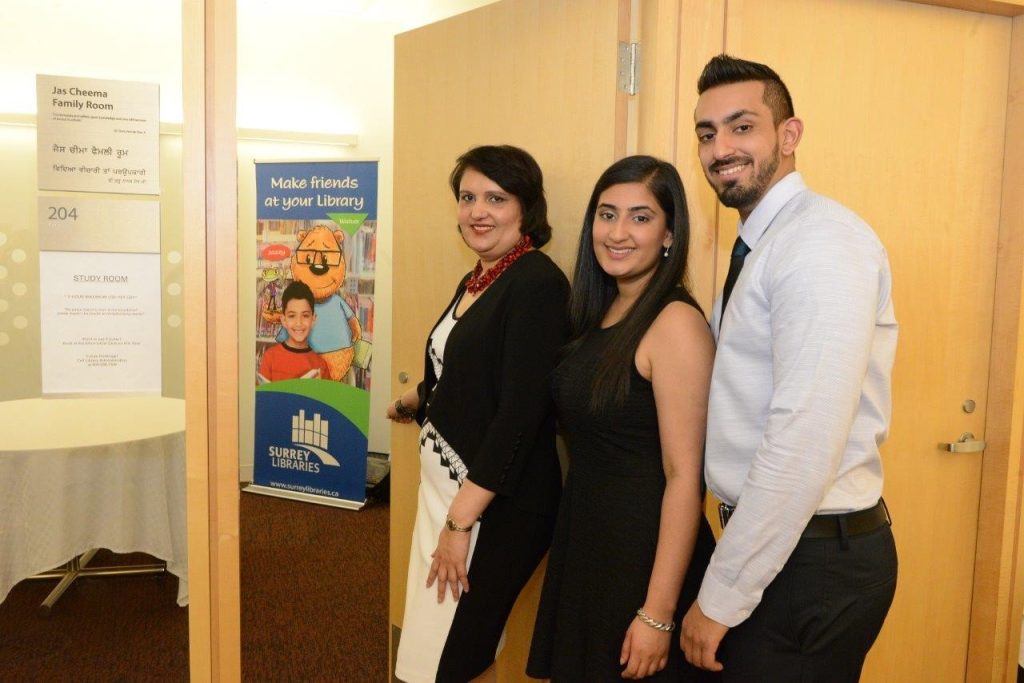
“My illness took a real emotional toll on the kids, seeing their mom needing care wasn’t something they had faced,” says Jas. “I was always the glue that held things together, so seeing my vulnerability and strength taught them some important life lessons about going with the ebbs and flows of life and trusting that ‘this too shall pass.”
“Having conversations around my health care wishes and advance care planning is a bit more comfortable now, and now that they are older, they are more able to understand and value the process. They’ve also seen the consequences of unfinished business and a family not knowing someone’s wishes, so they understand the benefits of having ACP conversations, even when they’re hard.”
“Both of my kids know what I want and although culturally the more natural choice would be to have my son make decisions on my behalf, I have chosen my daughter to speak for me… she is a Social Worker who understands the healthcare system, is well-spoken and self-assured, so a good substitute decision maker for me.”
When Jas talks about lessons learned through her experience, she shares a few good ones: “One truth is that, in life, things happen, and some of those things can be challenging. Being prepared will help you ride those waves. Another truth is that, when it comes to family, the more comfortable I can be talking about being vulnerable and my healthcare wishes, the easier it is for others to hear, and the richer those conversations become.”
Finally, Jas says she would encourage everyone to start their plans today! The BC Centre for Palliative Care has some great resources (including many in Punjabi and Hindi) that can help you get started.
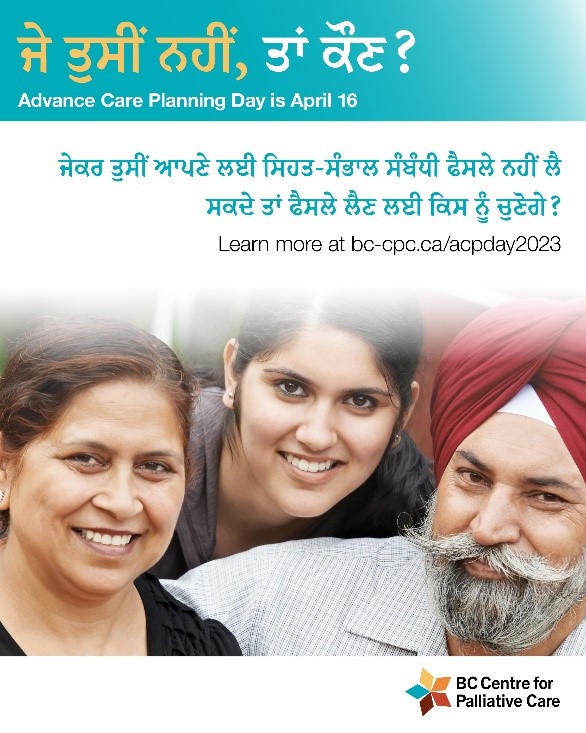
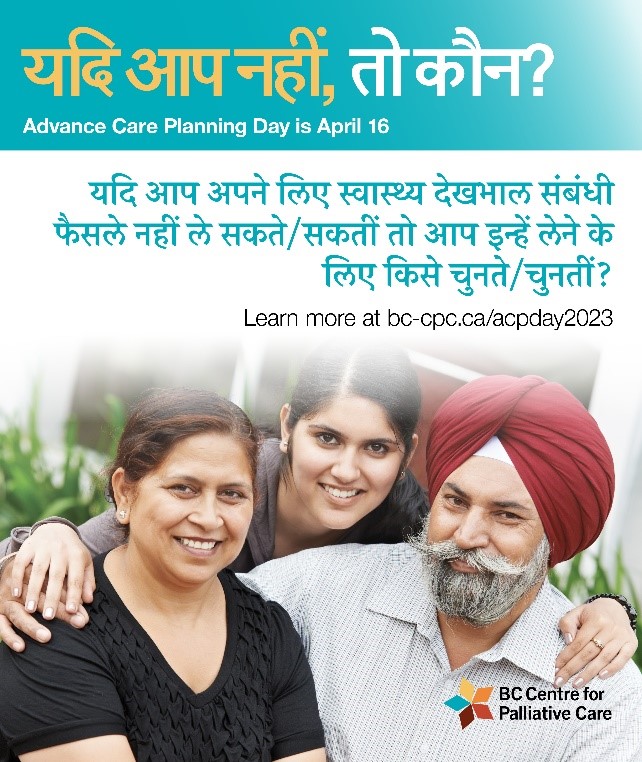
If you want to become an advance care planning advocate and start an ACP Day awareness campaign, visit bc-cpc.ca/acpday2023 for ideas and tools.
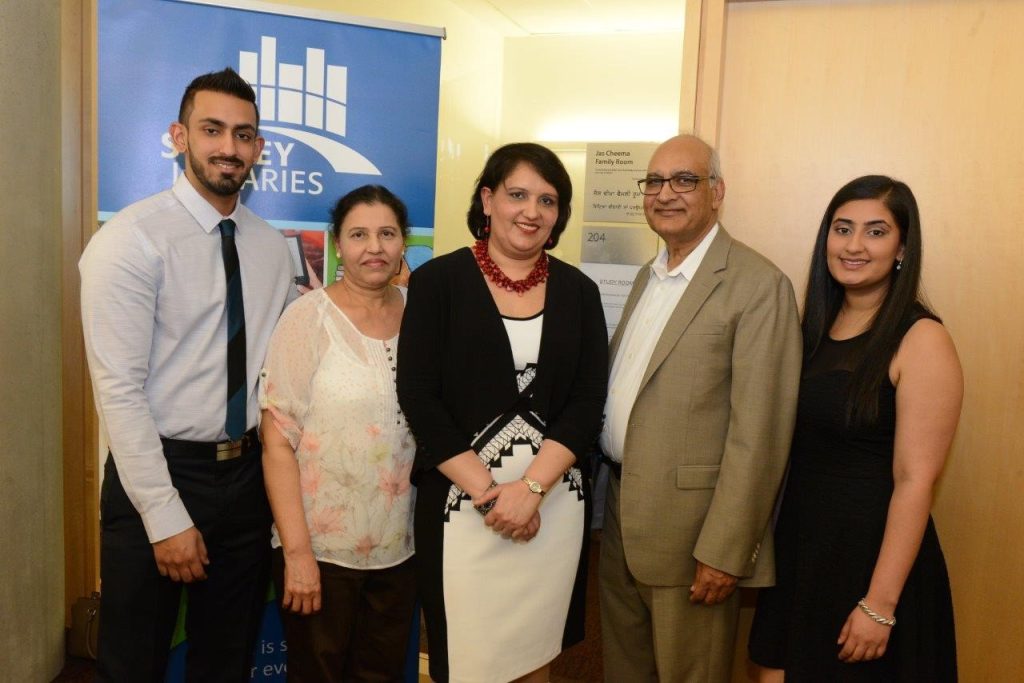
Jas’s tips to get started:
- Take some time to clarify your own thoughts before opening the conversation. You may not have all the answers, but it gives you a place to start.
- Consider individual and cultural preferences: some may like to include a large group, others to keep it one-on-one.
- Be patient if you encounter resistance; but be persistent too to get over the initial resistance… these conversations are worth it!
- You won’t cover everything at once. Think of it as an ongoing conversation, and it’s okay to take it in small doses.
- Sometimes it’s easiest to start small… While you’re considering the big questions, don’t forget to think about what’s good about the everyday. Small things that we have control over are valuable and worth noting.
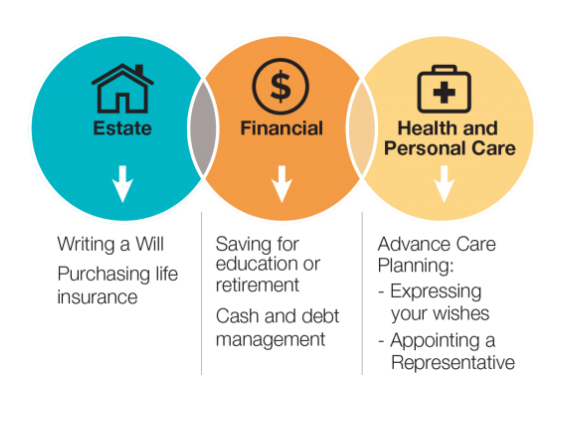
Quick facts:
- Advance care planning is a way for you to: think about and share your values, beliefs and wishes support informed health-care decision making can help you get care that’s right for you
- 76%* of British Columbians agree it is important to talk about what matters for their future health care, but only…
- 33% have heard of Advance Care Planning
- 48% have talked with family
- 14% have talked with a health-care provider
- 28% have recorded their wishes
- People who have done Advance Care Planning have higher satisfaction with their care and better quality of life.
* According to a 2020 public poll commissioned by BC Centre for Palliative Care

The BC Centre for Palliative Care (www.bc-cpc.ca), a provincial non-profit created by the Ministry of Health to accelerate improvement in palliative care in BC, is at the forefront of championing advance care planning for every adult in British Columbia. For questions and inquiries, contact mailto:office@bc-cpc.ca.


